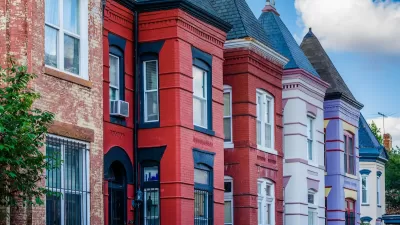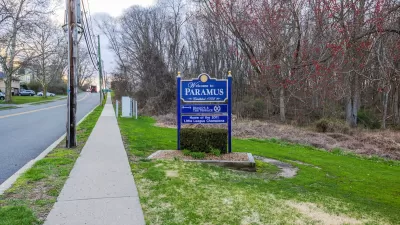The city’s comprehensive, neighborhood-focused housing strategy focuses on identifying properties and land that can be repurposed for housing and encouraging development in underserved neighborhoods.

New research from the Harvard Kennedy School’s Data-Smart City Solutions project analyzed how the city of Atlanta uses a neighborhood-based approach and data to improve its housing services and preserve affordable housing in the city.
As Jabari Simama explains in a piece for Governing, “Harvard identified four key components of Atlanta’s approach: collaboration across sectors, identifying developable properties, strengthening governance and planning for the future.”
According to the Atlanta mayor’s chief policy officer, Courtney English, the city’s approach to housing focuses on “neighborhood health” in some of the city’s most distressed neighborhoods. A group called the Affordable Housing Strike Force, which includes leaders from the housing authority, a land bank, the school district, the city’s transportation department, and nonprofits, was created to coordinate efforts. “The strike force identified approximately 2,000 undeveloped acres that could be repurposed for housing, categorizing the properties on factors such as development readiness, remediation needs and proximity to transit.”
In three years, the city built 7,000 new housing units and has 4,000 more in the pipeline. The city is also acquiring office buildings to convert to housing and is creatively using city-owned properties to add housing. “When asked what he would say to public officials who believe this model wouldn’t work in their cities, English pointed to the long-term cost of inequity — that economic stability depends on building and maintaining a strong middle class and preventing widespread poverty and violence that drive residents out of a city.”
FULL STORY: Atlanta's Housing Approach Offers a Model for Other Cities

Planetizen Federal Action Tracker
A weekly monitor of how Trump’s orders and actions are impacting planners and planning in America.

Congressman Proposes Bill to Rename DC Metro “Trump Train”
The Make Autorail Great Again Act would withhold federal funding to the system until the Washington Metropolitan Area Transit Authority (WMATA), rebrands as the Washington Metropolitan Authority for Greater Access (WMAGA).

DARTSpace Platform Streamlines Dallas TOD Application Process
The Dallas transit agency hopes a shorter permitting timeline will boost transit-oriented development around rail stations.

New Alaska Bitcoin Mine Would Burn as Much Energy as the State’s Largest Coal Plant
Fueled by “stranded” natural gas, the startup hopes to become the largest in the US, and to make Alaska an industry center.

New Jersey Duplexes Elicit Mixed Reactions
Modern, two-unit residences are proliferating in northern New Jersey communities, signaling for some a boon to the housing supply and to others a loss of historic architecture.

Renters Now Outnumber Homeowners in Over 200 US Suburbs
High housing costs in city centers and the new-found flexibility offered by remote work are pushing more renters to suburban areas.
Urban Design for Planners 1: Software Tools
This six-course series explores essential urban design concepts using open source software and equips planners with the tools they need to participate fully in the urban design process.
Planning for Universal Design
Learn the tools for implementing Universal Design in planning regulations.
Municipality of Princeton
Roanoke Valley-Alleghany Regional Commission
City of Mt Shasta
City of Camden Redevelopment Agency
City of Astoria
Transportation Research & Education Center (TREC) at Portland State University
US High Speed Rail Association
City of Camden Redevelopment Agency
Municipality of Princeton (NJ)





























